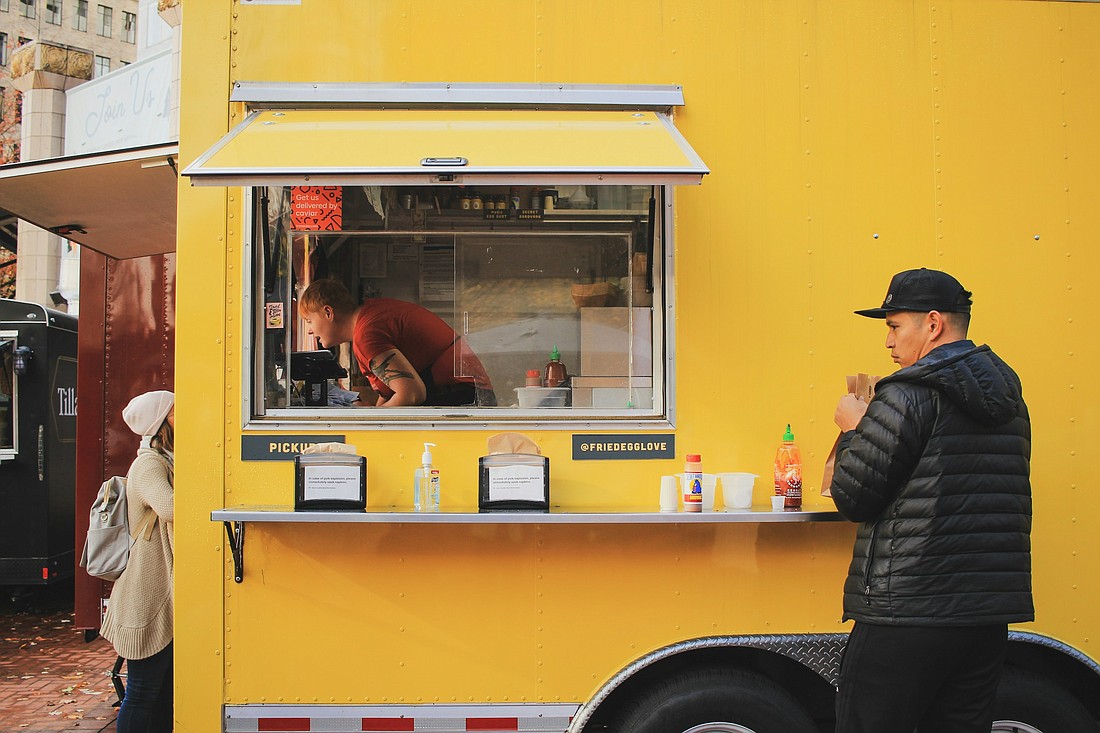- April 29, 2025
-
-
Loading

Loading

A coalition of food trucks and a Virginia nonprofit, public interest law firm are urging the government of Haines City in Polk County to cease efforts to pass a "near-total ban" on food trucks and to allow all banned food trucks to resume operations, says an agency representing the trucks, the Virginia-based Institute for Justice.
Haines City's food truck ban violates state law as well as the Florida and U.S. constitutions, says the Institute for Justice in a Monday news release.
Earlier this month, Haines City considered an ordinance that would force city staff to stop issuing the necessary approval for new food trucks to legally operate — "effectively banning them from operating in Haines City," says the legal group. The ordinance would apply to existing food trucks as well, resulting in those trucks losing city permission to operate on Oct. 1.
The City Commission voted to approve the ordinance during a first reading on Jan. 16 and it is expected to vote it into law during a final reading on Thursday, the institute says.
A Jan. 16 memo from Richard Greenwood, development services director of Haines City, outlines the rules and stipulations of the ordinance. The memo was written to Haines City Mayor and city commissioners. An organizational goal of the ordinance, Greenwood writes, is to "foster an environment that attracts economic opportunity and sustains economic viability."
The memo adds that there will "be minimal impact to the FY 2023-2024 budget as Business Tax Receipts for food trucks are less than $37."
"It has been found that mobile food vendors … are incompatible with permitted uses in the zoning districts and to the economic values generally within the districts," the ordinance's specific sections state. "The City Commission hereby determines that it is in the best interest of the City to prohibit the issuance of business tax receipts for new mobile food trucks."
The institute says even though the ban has yet to be officially approved, Haines City has already begun enforcing it, causing some food trucks to shut down.
Haines City Mayor Roy Tyler did not return a message from the Business Observer seeking comment on the ordinance or enforcement of it.
Matthew Prensky, an Institute for Justice spokesperson, told the Business Observer on Tuesday that Haines City officials have agreed to meet with institute attorneys to discuss the matter. It is uncertain if the meeting will come before the commission's final vote.
The Institute for Justice says it helped lobby to pass a Florida law in 2020 protecting food trucks from such local ordinances.
"In particular, the city’s ordinance violates Florida’s prohibition against local municipalities requiring food trucks to obtain 'a separate license, registration, or permit' other than what's required by the state," the institute says. "Additionally, the ordinance violates a state ban on cities prohibiting 'mobile food dispensing vehicles … from operating within the entirety of the entity's jurisdiction.'"
And, the institute says, Haines City's proposed law "also runs afoul with the Florida Constitution, which has a substantive due process clause that protects an individual’s right to earn an honest living. In this case, courts (including in Florida) haven't hesitated to strike down laws that unfairly burden food trucks."
The city's proposed law would also stop most existing food trucks from operating beyond Oct. 1, the institute says. The ordinance’s ban applies even to food trucks that operate on private property. Under the new ordinance, the trucks will be forced to stop vending from those spaces or anywhere else in the city, according to the institute.
Under Haines City’s ordinance, only a small subset of food trucks would be allowed to continue operating past Oct. 1. Those operations would be limited because the town prohibits food trucks from operating near other restaurants and food businesses, the institute says.
The city used to prohibit food trucks from operating within 150 feet of "the same type" of food establishment. But the new ordinance would prohibit them from operating within 150 feet of any food establishment, making it even more difficult for the food trucks to find a legal space, the institute says.
"In these difficult times, Haines City should be helping small businesses, not putting them out of business," says Erica Smith Ewing, senior attorney at the Institute for Justice, in a written statement. “The city's new ordinance is not only unjust, but illegal and unconstitutional.”
The institute says it has spent decades fighting to protect the right to earn an honest living, "including winning two different U.S. Supreme Court cases on the subject." As part of its "National Street Vending Initiative," the institute defeated dozens of laws aimed at street vendors and food trucks, and notes legal victories in Florida, Georgia, Kentucky and North Carolina.